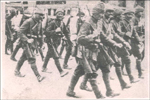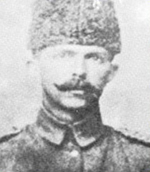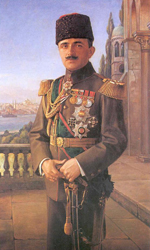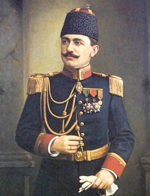Lessons Learned
1. The Russian Casualties were very high as compared to their casualties in other fronts. However, the Turkish Casualties were literally terrifying. It was one of the rare battles in the history with such an enormous casualty rate. Unfortunately, it wasn’t the Russians that caused such a tremendous casualty rate. It was the nature itself that killed so many soldiers in the campaign. The corps, divisions and brigades that were indicated on maps were a hollow shell of themselves, for there is no such thing as a corps with 450 soldiers or a brigade with 150 soldiers.
2. Logistic support at the field was very inadequate in spite of the well-prepared plans. Because of large distances to the initial bases, supply was cut off due to severe winter conditions which adversely affected even the animals carrying ammunition, cannons and everything.
3. Subordinate units were cut off from headquarters and were given no initiative. Most of the time, soldiers were out in the cold and could not use inhabited areas sufficiently. Because of the great desire to enter Sarikamish as soon as possible, the soldiers were not given a break and therefore were very tired.
4. Security, reconnaissance and liaison measures were very weak in the full sense of the word. And this precluded success. Communication failure resulted in defeat.

Photo: Turkish forces are taking a brief rest
5. Turkish troops were desperately starving.
6. The mobilization was not accomplished completely and units were not equipped adequately to face the severe field and weather conditions.

Photo: Soldiers of the third army marching
7. Replacement of the highly experienced commanders with young ones shortly before the onset of the operation contributed widely to that undesired outcome.

Photo: Hasan İzzet Pasha, the intitial commander of the third army

Photo: Comander-in-Chief representative Enver Pasha had taken command of the third army
8. On the one hand, an ultra active 10th Corps Commander, Hafiz Hakki Pasha, and a passive commander, Galip Pasha had a very significant effect on battles.

Photo: Hafız Hakkı Paşa (Commander of the 10th Corps)
9. During attacks the forces (11th Corps) tasked to tie down the Russians could not perform their duties and this adversely affected the course of the operations.

Photo: Turkish cavlary units
10. After the first week of January, 3rd Army forces started to withdraw. But Russians missed a big opportunity to demolish them by not attacking.
11. Despite all of the setbacks, the Turks missed several opportunities. However, the Russians couldn’t obtain a final victory because they didn’t pursue the Turkish Forces. As a result, this front never collapsed despite the withdrawal of the Turkish Forces.
12. For a final result, a superior combat power could not be focused on the right place in a timely manner (Sarikamish on 26 Dec). Contrary to the plan, the extension of the besieging wing by 12 kilometers by the 10th Corps without any prior notice changed everything.

Sketch: Advancement path of the 10th Corps is altered without a reason

Sketch: Advancement routes of the 9th and 10th Corps (in general)
13. Not attacking to Sarikamish at 25th and 26th of December 1924 by Turkish Soldiers.
14. After realizing there was a besieging maneuver by the Turks, the Russians shifted in a timely manner and concentrated their forces at Sarikamish prior to the commencement of Turkish Attacks on the town.
|